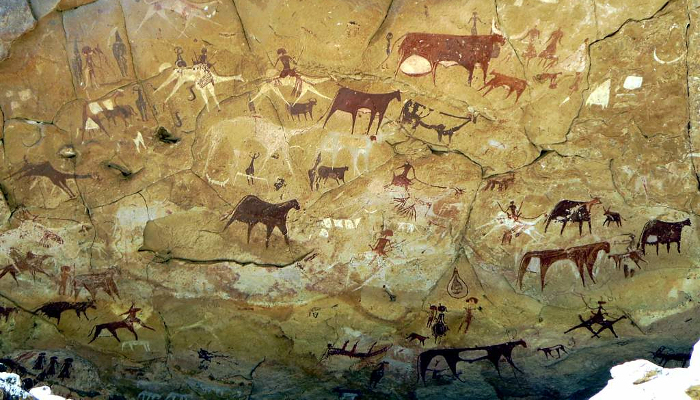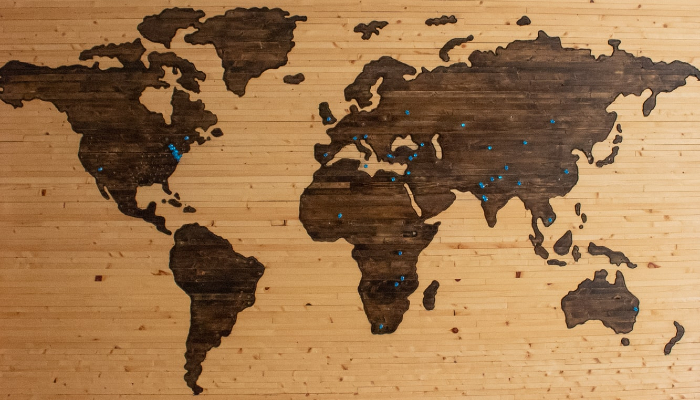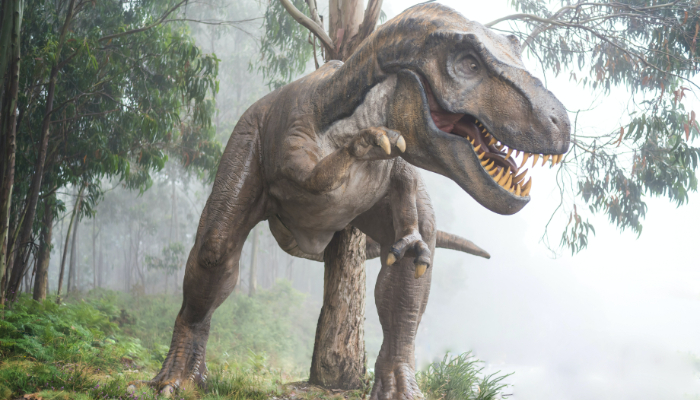Stone Age
Where can I find information about the Stone Age?
(Years 5-8)

Image: Prehistoric Rock Paintings by David Stanley on Flickr.
Entry last updated: 27/11/24
Introduction
The Stone Age was a period in prehistoric times that lasted millions of years. Prehistoric means a time before people created writing to keep records of events. This period was called the Stone Age because stone was the main material that people used to create tools.
Stone Age periods
There are three different periods of the Stone Age, based on what sort of tools people were using at the time. The dates for these periods change in different parts of the world because not everyone started using the same tools at the same time.
Paleolithic: means 'old stone age' or the earliest period of the Stone Age. People of this age lived in caves and made simple tools from stone. They were also nomadic which means they moved from place to place to hunt or gather food.
Mesolithic: or 'middle stone age' is when early man started to make changes to the way they lived and the tools they used. They also began to eat a wider range of animals and plants.
Neolithic: the 'new stone age' or the most recent period of the Stone Age. During this period early man began to polish and grind stone to make tools, tame animals, grow crops and settle down in villages.
General websites
Have a look at these websites to find out how early humans lived, for information about cavemen and cavewomen, and the kind of tools they made.
This is one of the EPIC databases — a collection of databases that covers lots of different topics. It is put together especially for New Zealand school students and helps to answer questions like this.
First, log into the website.
Then enter the keywords 'stone age' into the search box at the top of the page.
Next, choose the page Stone Age (prehistoric period to read about the different stone age periods and how the stone age ended.
Tips: To use the EPIC resources, you need a password from your school librarian. Or chat with one of our AnyQuestions librarians to help you online. Some EPIC databases may also be available through your public library.
This is another EPIC database for primary school students on a range of topics like animals, geography, history, science, technology and more.
Use the search box to enter the search words 'stone age'.
This will bring up a page of results that has lots of news, book and magazine articles.
Take a look at the book article Stone Age or the magazine article Stone age tools discovered in a Mexican cave.
Tips: Search words, or keywords, are the most important words in our question. Usually it’s better to leave out small words like ‘the’, ‘a’ and ‘of’ and just choose the main ones, eg stone age. We can always change our keywords or add more if we need to.
This site has videos and articles that have been designed especially for school students. Because this website is aimed at British school students, the information here will be about the Stone Age in Britain.
Enter the keywords 'stone age' into the search at the top of the page.
Then have a look at Stone Age and how hunter-gatherers lived to read how the early man used tools to get their food.
NOTE: You may find the videos do not work. This is because the videos are meant to play only in a certain region.
Tips: Websites that have .com or .co in the address can have good information, but you need to assess how reliable it is. We like the BBC because it is a reliable organisation. Check the About the BBC link at the end of the page.
Cave art
Cave art or cave paintings can date back to 44,000 years ago. They were painted by prehistoric people and have been preserved because the environment inside caves has protected them. Have a look at these websites to find out more about cave art.
This website has heaps of videos on different topics, including one on cave art.
Find the search icon near the top of the page and enter the keywords 'stone age'.
Then choose the video Genevieve von Petzinger & the invention of graphics on cave walls.
This website has a cool video exploring cave art too.
Then enter the words 'cave art' into the search box.
Choose the link to Prehistory 101: Cave Art.
Tips: Websites that have .org or .net in the address can have good information, but you need to assess how reliable it is. Check the About us link on the website, if you can find one. That can tell you what the organisation’s mission and values are. We like National Geographic because it is a reliable scientific organisation.
Books
Check out some of these books about the Stone Age, or ask your school or local librarian for more.
The Stone Age by Jon Richards
Stone Age by Klint Janulis
The Stone Age: hunters, gatherers and woolly mammoths by Marcia Williams
The Stone Age by Jerome Martin
Life in the Stone Age by Deborah Lock.
SCIS no. 5402741


